Hyundai i30 vs Jeep Avenger - Differences and prices compared
Compare performance (140 HP vs 156 HP), boot space and price (24000 £ vs 21900 £ ) at a glance. Find out which car is the better choice for you – Hyundai i30 or Jeep Avenger?
Costs and Efficiency:
Looking at overall running costs, both models reveal some interesting differences in everyday economy.
Jeep Avenger has a barely noticeable advantage in terms of price – it starts at 21900 £ , while the Hyundai i30 costs 24000 £ . That’s a price difference of around 2049 £.
Fuel consumption also shows a difference: Jeep Avenger manages with 4.90 L and is therefore somewhat more efficient than the Hyundai i30 with 5.70 L. The difference is about 0.80 L per 100 km.
Engine and Performance:
Under the bonnet, it becomes clear which model is tuned for sportiness and which one takes the lead when you hit the accelerator.
When it comes to engine power, the Jeep Avenger has a somewhat edge – offering 156 HP compared to 140 HP. That’s roughly 16 HP more horsepower.
In acceleration from 0 to 100 km/h, the Jeep Avenger is hardly perceptible quicker – completing the sprint in 9 s, while the Hyundai i30 takes 9.60 s. That’s about 0.60 s faster.
In terms of top speed, the Hyundai i30 performs barely noticeable better – reaching 197 km/h, while the Jeep Avenger tops out at 194 km/h. The difference is around 3 km/h.
There’s also a difference in torque: Jeep Avenger pulls minimal stronger with 260 Nm compared to 253 Nm. That’s about 7 Nm difference.
Space and Everyday Use:
Whether family car or daily driver – which one offers more room, flexibility and comfort?
Both vehicles offer seating for 5 people.
In curb weight, Jeep Avenger is hardly perceptible lighter – 1180 kg compared to 1291 kg. The difference is around 111 kg.
In terms of boot space, the Hyundai i30 offers minimal more room – 395 L compared to 380 L. That’s a difference of about 15 L.
In maximum load capacity, the Hyundai i30 performs barely noticeable better – up to 1301 L, which is about 24 L more than the Jeep Avenger.
When it comes to payload, Hyundai i30 barely noticeable takes the win – 509 kg compared to 502 kg. That’s a difference of about 7 kg.
Who wins the race?
The Jeep Avenger proves to be wins the duel decisively and therefore becomes our DriveDuel Champion!
Jeep Avenger is the better all-rounder in this comparison.
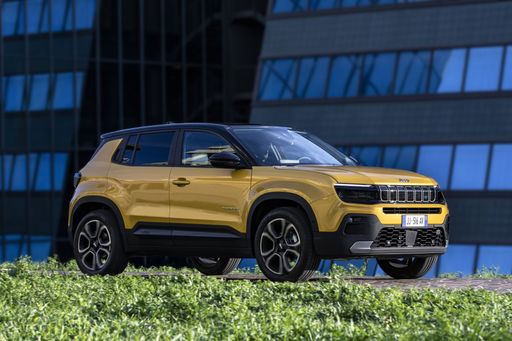
Jeep Avenger
Costs and Consumption
View detailed analysis
Engine and Performance
View detailed analysis
Dimensions and Body
View detailed analysis
Hyundai i30
The Hyundai i30 proves that sensible can also be stylish, offering a confident driving character wrapped in neat, modern design. It serves up a roomy, well-equipped cabin and composed ride that make everyday motoring feel like a clever purchase rather than a compromise.
details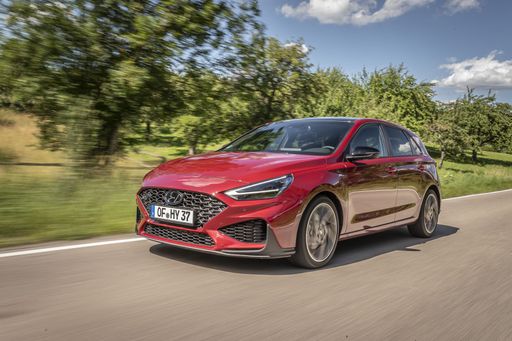
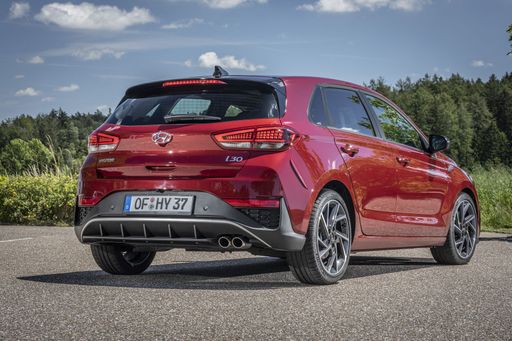
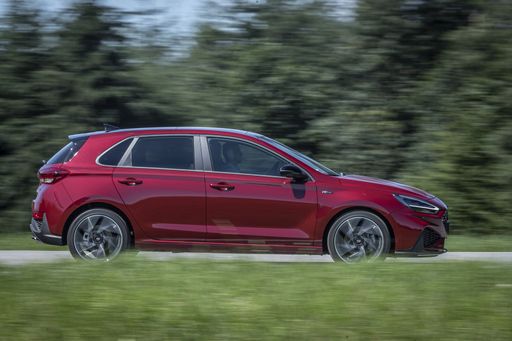
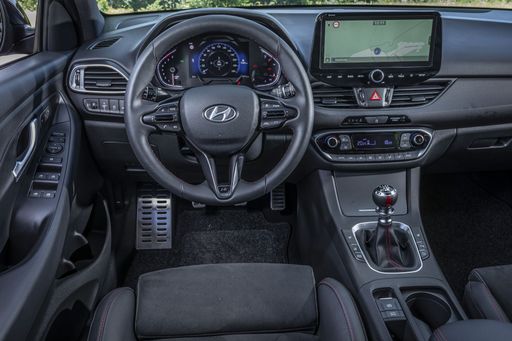
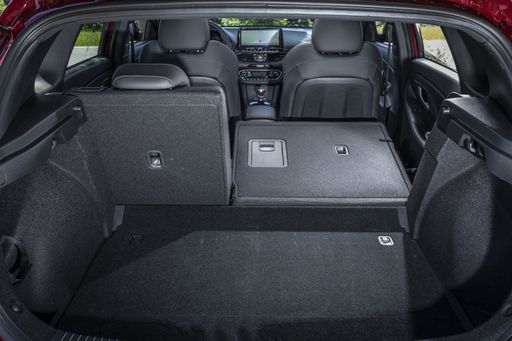
Jeep Avenger
The Jeep Avenger shrinks Jeep's boxy, adventurous styling into a city-friendly electric crossover that looks just as at home on tight streets as it does on muddy weekend lanes. It's a savvy pick for drivers who want go-anywhere attitude without the truck-size ego — practical inside, lively around town and ready to tackle a bit of rough stuff when the mood strikes.
details
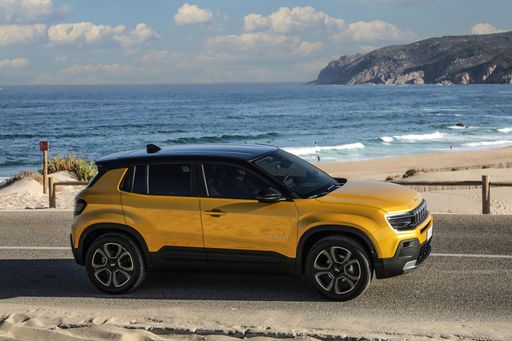



Costs and Consumption |
|
|---|---|
|
Price
24000 - 29300 £
|
Price
21900 - 36900 £
|
|
Consumption L/100km
5.7 - 6 L
|
Consumption L/100km
4.9 - 5.7 L
|
|
Consumption kWh/100km
-
|
Consumption kWh/100km
15.50 kWh
|
|
Electric Range
-
|
Electric Range
400 km
|
|
Battery Capacity
-
|
Battery Capacity
51 kWh
|
|
co2
130 - 136 g/km
|
co2
0 - 129 g/km
|
|
Fuel tank capacity
50 L
|
Fuel tank capacity
44 L
|
Dimensions and Body |
|
|---|---|
|
Body Type
Hatchback
|
Body Type
SUV
|
|
Seats
5
|
Seats
5
|
|
Doors
5
|
Doors
5
|
|
Curb weight
1291 - 1407 kg
|
Curb weight
1180 - 1520 kg
|
|
Trunk capacity
395 L
|
Trunk capacity
325 - 380 L
|
|
Length
4340 mm
|
Length
4084 - 4088 mm
|
|
Width
1795 mm
|
Width
1776 mm
|
|
Height
1455 mm
|
Height
1527 - 1541 mm
|
|
Max trunk capacity
1301 L
|
Max trunk capacity
1218 - 1277 L
|
|
Payload
463 - 509 kg
|
Payload
494 - 502 kg
|
Engine and Performance |
|
|---|---|
|
Engine Type
Petrol, Petrol MHEV
|
Engine Type
Electric, Petrol, Petrol MHEV
|
|
Transmission
Manuel, Automatic
|
Transmission
Automatic, Manuel
|
|
Transmission Detail
Manual Gearbox, Dual-Clutch Automatic
|
Transmission Detail
Reduction Gearbox, Manual Gearbox, Dual-Clutch Automatic
|
|
Drive Type
Front-Wheel Drive
|
Drive Type
Front-Wheel Drive, All-Wheel Drive
|
|
Power HP
100 - 140 HP
|
Power HP
100 - 156 HP
|
|
Acceleration 0-100km/h
9.6 - 13.1 s
|
Acceleration 0-100km/h
9 - 10.6 s
|
|
Max Speed
178 - 197 km/h
|
Max Speed
150 - 194 km/h
|
|
Torque
172 - 253 Nm
|
Torque
205 - 260 Nm
|
|
Number of Cylinders
3 - 4
|
Number of Cylinders
3
|
|
Power kW
74 - 103 kW
|
Power kW
74 - 115 kW
|
|
Engine capacity
998 - 1482 cm3
|
Engine capacity
1199 cm3
|
General |
|
|---|---|
|
Model Year
2024
|
Model Year
2023 - 2025
|
|
CO2 Efficiency Class
D, E
|
CO2 Efficiency Class
A, D, C
|
|
Brand
Hyundai
|
Brand
Jeep
|
What drive types are available for the Hyundai i30?
Available configurations include Front-Wheel Drive.




